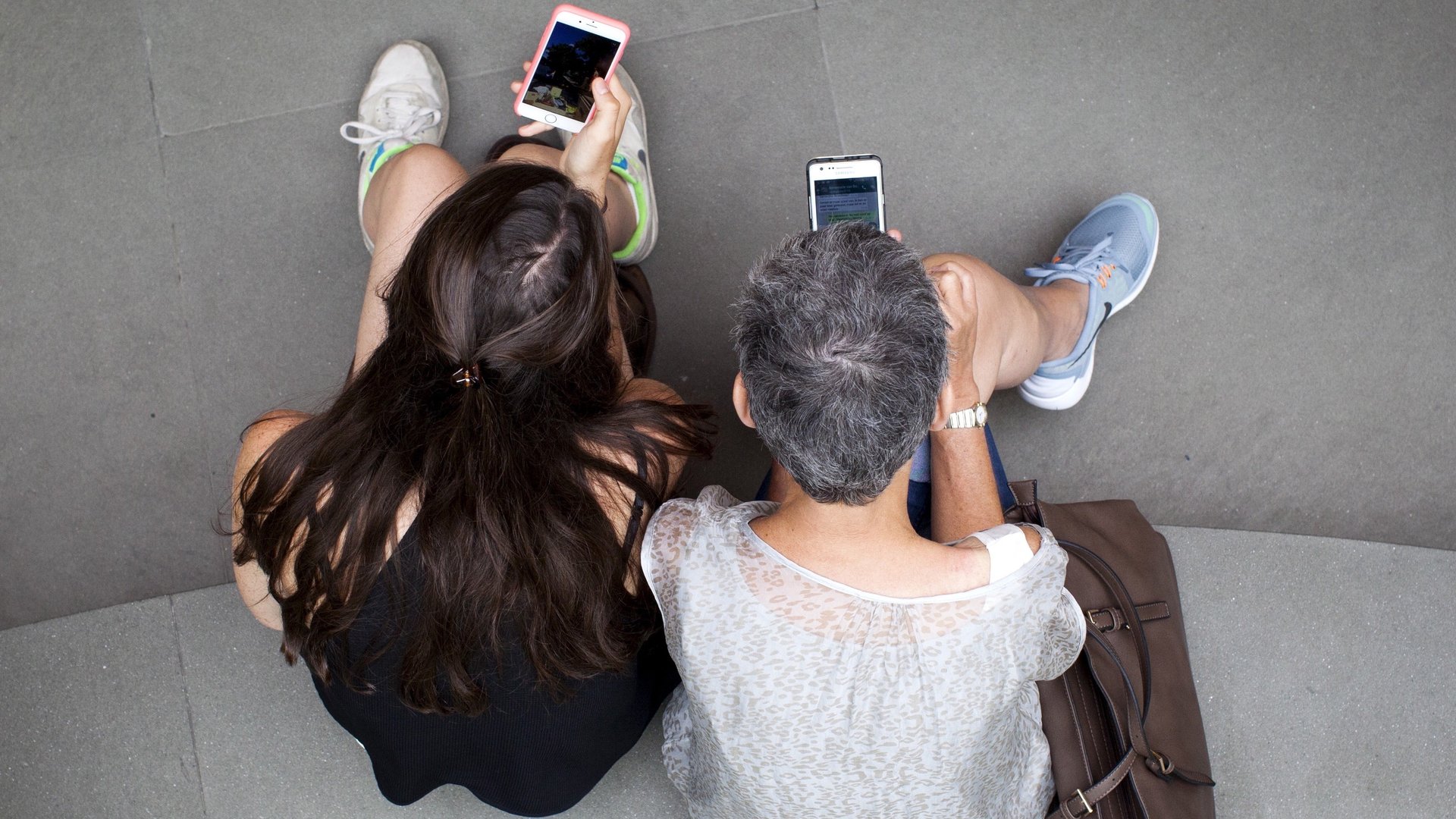Your favorite messaging apps, ranked by privacy from best to worst
If you’re using BlackBerry Messenger to relay private messages, you might want to switch apps.


If you’re using BlackBerry Messenger to relay private messages, you might want to switch apps.
Amnesty International assessed 11 companies behind some of the most popular messaging apps in the world on how well they use encryption to guard your privacy.
Facebook is the clear winner with 73 out of a possible 100 points. In particular, WhatsApp’s one billion users can let out a sigh of relief. Its data is end-to-end encrypted so “nobody in between, not even WhatsApp” can see your chats, the app’s website states. It’s also the only app that Amnesty looked at that explicitly warns users when end-to-end encryption is not applied to a particular chat. (This can happen if both parties communicating don’t have the latest update.)
Facebook’s other messaging service, Messenger, does not apply end-to-end encryption as a default but the watchdog gives Facebook credit for warning users about the weaker form of encryption is does use.
Apple’s FaceTime and iMessage apps, with end-to-end encryption enabled by default, put the company in second place. The company has also publicly fought to protect the security of its customers. In February this year, Apple refused to comply with a US federal judge’s ruling that the company must help the Federal Bureau of Investigation break into the iPhone of one of the San Bernardino shooters.
One of the reasons Apple fell short is because in instances where the information isn’t fully encrypted—like when you text a non-iPhone number—the company does not do a good job of telling that to you.
Google CEO Sundar Pichai sided with Apple in opposing “encryption backdoors” and its video-calling app Duo offers end-to-end encryption by default—but that’s not the case with Allo, where encryption is optional, or Hangouts, which has none.
BlackBerry Messenger offers end-to-end encryption, but only as a paid subscription service. It’s not an option at all on Snapchat—though the company has said its considering implementing it in the near future. Both BlackBerry and Snapchat performed poorly on Amnesty’s privacy scorecard.
To find the real losers here, though, you have to look to China. Shenzhen-based Tencent has surpassed Alibaba as China’s most valuable tech company, but came in dead last in this list.
Tencent owns the country’s two most successful messaging apps: WeChat and QQ. The former, which originally mimicked WhatsApp’s messaging functionality, now incorporates Facebook-esque pages and a newsfeed, and works as a mobile payment app.
Although it fulfills many user needs in just one portal, WeChat scored zero points in Amnesty’s assessment. “Not only did it fail to adequately meet any of the criteria, but it was the only company which has not stated publicly that it will not grant government requests to access encrypted messages by building a ‘backdoor,'” the report stated.